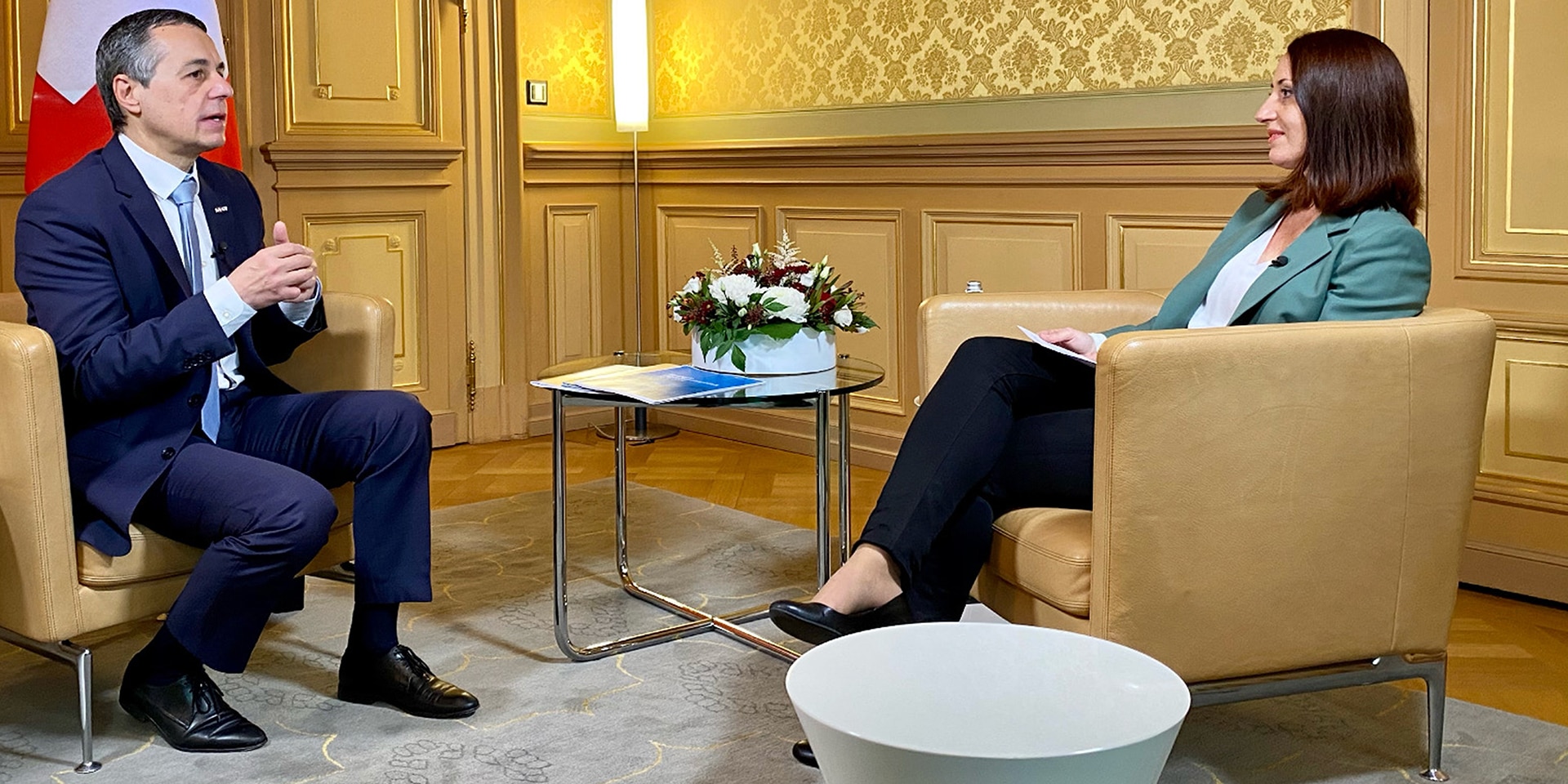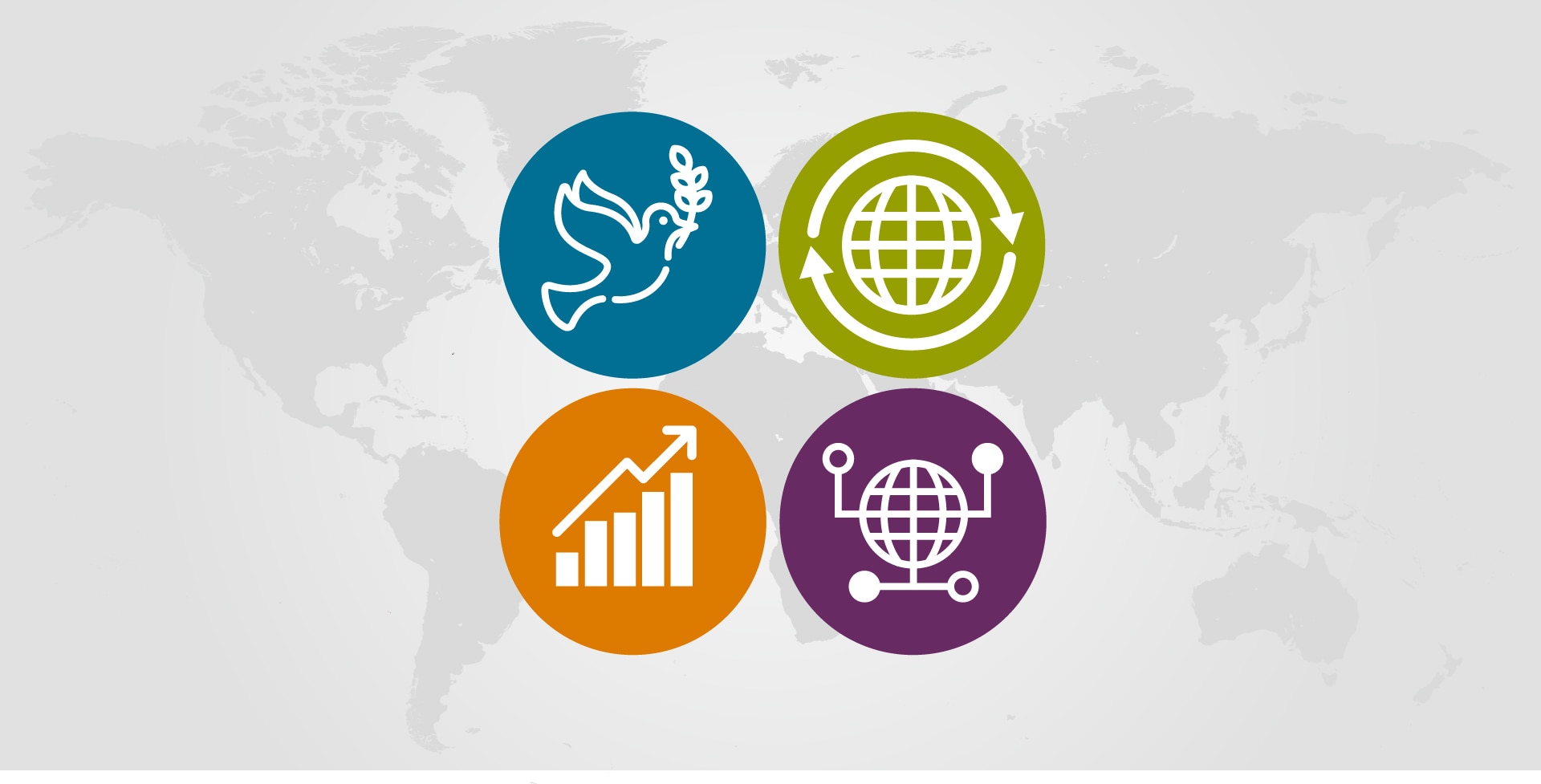"Geneva is to become the international capital of digital governance"
In an interview at the Swiss Digital Days, Federal Councillor Ignazio Cassis talks about the significance of digital change and the role Switzerland can play.

In an interview at the Swiss Digital Days, Federal Councillor Ignazio Cassis talks about the significance of digital change and the role Switzerland can play. © FDFA
Numerous countries were supposed to meet at the end of October for the UN General Assembly in New York. Nothing came of it. COVID-19 is also causing one of the most important international organisations to miss out. Instead of in America, the UN General Assembly took place mostly virtually, although around the world. "It was a special assembly. We are used to almost all countries being together in New York on this occasion. Suddenly everyone is in their office or at home in their own homes," recalls Federal Councillor Ignazio Cassis.
But thanks to digitalisation, an exchange was still possible virtually. "People saw each other despite the physical distance. It made it very clear how important technological developments and digitisation are. Without them, we simply could not have met.
Priority issue in Switzerland’s Foreign Policy Strategy
The Swiss Digital Days take place for the fourth time in 2020. For the first time, the event will extend over three days and – nomen est omen – is mostly held digitally. The aim of the event is to bring the topic of digitisation to life and promote dialogue. This is a goal that Switzerland is also pursuing in its foreign policy. "At the beginning of this year the Federal Council adopted the Foreign Policy Strategy 2020–2023. In addition to Switzerland's three traditional subjects – peace and security, prosperity and sustainability – the subject of digitisation is included as a priority issue in its own right for the first time," explains Mr Cassis.
But why is this topic so important for Switzerland? "Because digitisation is about to fundamentally change our lives, our world and our everyday life. This has major implications for Switzerland's foreign policy, for example the role of International Geneva, digital governance and digital self-determination".
International Geneva as the capital of digital governance
Digital governance is always mentioned in the context of a digital foreign policy strategy, but few people really know what it means. " Governance is understood to be the management of government. In this context, people like to talk about good governance. Digital governance therefore means governance in the digital space," explains Federal Councillor Ignazio Cassis. "Since the digital space affects the whole world, we need common rules."
In the area of digital governance in particular, Switzerland aspires to international leadership. "Already today, more than half of the international talks on governance take place in International Geneva. It must be our goal to make use of this know-how and the experts – Geneva should become the international capital of digital governance as well".
Established law for new dimensions
In the digital space there are no national borders, so international cooperation is essential. "Precisely because digital space is a global space and is not bound by national borders, we need a global set of rules. And for this we have international organisations, among others," explains the head of the Federal Department of Foreign Affairs (FDFA). International Geneva in particular is home to numerous multilateral organisations. "We have many organisations that address the issue of digitisation in different ways. Now we need a directorate to structure this work".
In addition to international organisations, there are also Swiss initiatives with a strong international impact, such as the Geneva Science and Diplomacy Anticipator (GESDA) or the Cyberpeace Institute. "Geneva is today known for peace and human rights and for its humanitarian tradition. These strengths remain, but are increasingly digitalised," explains Mr Cassis. In this context, it is also crucial that the principles of international law are well equipped for the digital space. "We must not develop a new law, but adapt the existing one so that it is ready for the new dimension of digital coexistence". This will increase safety all over the world - both in a digital and in an analogue coexistence.
Coherent foreign policy in the digital spac
Digitalisation offers new opportunities for diplomacy, poverty reduction and sustainable development. But there are also risks involved in the processing of vast amounts of data, the spread of fake news and surveillance. By adopting the Digital Foreign Policy Strategy 2021–2024, the Federal Council is acknowledging digitalisation as a thematic priority of Switzerland's foreign policy. Read the article



